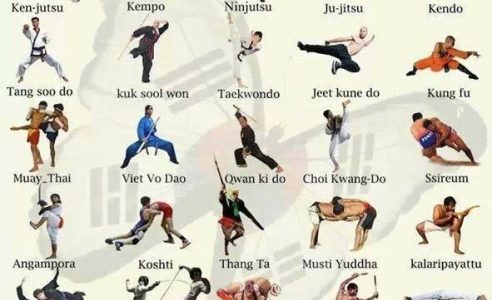The Global Trip And Growth Of Martial Arts Throughout Background
The Global Trip And Growth Of Martial Arts Throughout Background
Blog Article
please click the next website By-Kaufman Odonnell
Martial arts have a remarkable history that extends centuries and continents. You may find it fascinating exactly how ancient methods like Shuai Jiao and Kalaripayattu prepared for contemporary combat strategies. These techniques not just highlight physical skills however also show the societies that birthed them. As you explore their development, think about exactly how globalization has transformed these typical forms into hybrid styles. What influences do you believe have formed today's martial arts landscape?
Ancient Martial arts: The Structures of Fight
As you delve into the world of ancient martial arts, you'll discover the rich foundations that formed battle methods throughout cultures. Early practices focused on Self-Defense and survival, usually incorporating strikes, grappling, and weapons.
In old China, for instance, techniques like Shuai Jiao emphasized tosses and joint locks, while India's Kalaripayattu showcased dexterity and fluid movement. Japanese samurai developed Kenjutsu, a refined swordsmanship that highlighted technique and approach.
These martial arts served not just for fight however additionally as a way of personal development, instilling values like regard and willpower. The blending of these strategies gradually laid the groundwork for the varied martial arts you see today, each reflecting the distinct philosophies and demands of its society.
The Cultural Influence on Martial Arts Advancement
While martial arts typically reflect the sensible requirements of a society, they also personify the social values and beliefs of their origins. When you check out different martial arts, you'll observe exactly how they're affected by religion, philosophy, and social standards.
As an example, the emphasis on respect and discipline in Japanese martial arts stems from Zen Buddhism and samurai culture. In jay vera kajukenbo , Brazilian Jiu-Jitsu advertises adaptability and strategy, formed by the demand for efficiency in a varied, modern setting.
You might locate that the rituals, uniforms, and training methods reflect a neighborhood's background and identification. By understanding these cultural impacts, you strengthen your appreciation of martial arts and their function fit human experiences around the world.
Modern Adaptations and the Globalization of Martial arts
Martial arts have transformed considerably in current years, adjusting to modern society and worldwide impacts. You'll see that traditional forms have combined with modern methods, producing hybrid styles like mixed martial arts. These adjustments accommodate varied audiences, making martial arts obtainable and appealing around the world.
With the rise of social media sites and electronic platforms, you can locate tutorials and competitions from all corners of the globe, breaking geographical barriers. This globalization has actually resulted in a common appreciation for different techniques, from Brazilian Jiu-Jitsu to Taekwondo.
As you engage with these arts, you'll realize they're not almost fight; they promote physical fitness, technique, and mental wellness.
Ultimately, modern adjustments have enriched the martial arts landscape, making it a vibrant and evolving method.
Verdict
In exploring the background and evolution of martial arts, you discover a remarkable mix of techniques, societies, and viewpoints. From old techniques like Shuai Jiao and Kalaripayattu to the contemporary flexibility seen in mixed martial arts, martial arts show humankind's pursuit for Self-Defense and personal development. As you engage with these methods, you not just gain abilities but also a much deeper admiration for the diverse customs that form our world today. So, continue https://trevorvcipv.newbigblog.com/41304052/which-style-of-young-people-martial-arts-is-suitable-for-your-youngster-discover-and-discover-the-different-alternatives-offered and welcome the art of fight!
